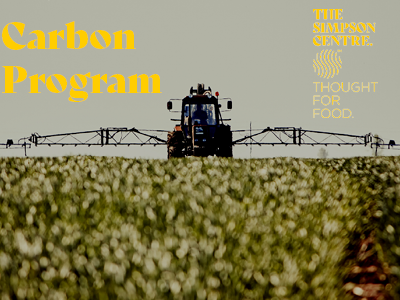Reducing Food-Related Emissions: Indicators and Carbon Labelling

Watch the Webinar
Reducing Food-Related Emissions: Indicators and Carbon Labelling
In the agri-food system, we must consider a variety of options to help meet net-zero emission targets. Agri-businesses have a variety of ways to report sustainability measurements to consumers, shareholders, and trading partners. Some companies are assessing and reporting on Environmental, Social and Governance (ESG) impacts. Another popular strategy is to develop globally relevant sustainability benchmarks that address transparency concerns about how agri-food is produced and supplied.
On the demand side, Carbon Footprint (CF) labelling is another way to assist consumers in making more sustainable choices and in reducing consumption-based emissions by pushing the demand for sustainability and efficiencies in production and supply chains.
In this webinar, we’ll explore sustainability indices, as well as carbon footprint labelling to consider whether these initiatives are helping us to deliver on our climate change commitments.
Speakers:
- David McInnes, Principal, DMci Strategies. Strategic advisor, speaker & facilitator on change and opportunity facing global food systems. He has been leading a private-public coalition of over 80 private-public partners to develop Canada’s first agri-food sustainability index.
- Prof. John Thøgersen, Department of Management – MAPP – Research on Value Creation in the Food Sector, Aarhus University Denmark. Author of “A Better Carbon Footprint Label” (2016).
Moderator:
- Shawn Wiskar, Policy Analyst, Simpson Centre, The School of Public Policy
There is no cost to register. The webinar will be hosted via Zoom. Please feel free to share this invitation with colleagues that may be interested.
Contact us at sppcomm@ucalgary.ca with any questions.
The Simpson Centre mobilizes research for better policymaking and decision-making to realize a more sustainable agricultural industry. Strengthening the sustainability of agri-food and agribusiness means increasing food production to feed a growing global population, while attending to social and health impacts and the natural environment. We connect researchers, everyday people, industry stakeholders and government actors to scientific issues critical to the future of Canada’s agricultural and food system.


